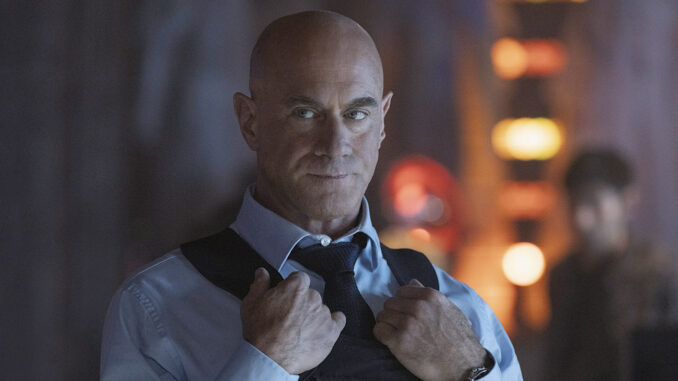
The North Star and the Harbor: Christopher Meloni’s Ideal Ending for Stabler and Benson
For over two decades, the names Elliot Stabler and Olivia Benson have been synonymous with the labyrinthine corridors of sex crimes, child abuse, and human depravity. They are the twin pillars of Law & Order: SVU, two characters forged in the fires of unimaginable darkness, whose partnership transcended the procedural drama to become a cultural phenomenon. Their “will they/won’t they” dynamic has fueled countless fan theories, essays, and emotional investments, a testament to the inscrutable chemistry between Christopher Meloni and Mariska Hargitay. So, when Meloni, the very embodiment of the intense, morally complex Elliot Stabler, offers his ideal ending for himself and Hargitay’s Olivia Benson, it isn’t just an actor’s musing; it’s a narrative balm, a cathartic vision for a generation of viewers who have journeyed with these characters through hell and back.
The weight of Stabler and Benson’s shared history is immense. They spent twelve years as partners, navigating the most heinous crimes imaginable, often blurring the lines between professional duty and profound personal empathy. Their relationship was the emotional bedrock of SVU: a fierce loyalty, an almost telepathic understanding, and an unspoken intimacy that often felt more real than any explicit romance. When Stabler abruptly departed in 2011, leaving Benson behind to shoulder the burden alone, it created an unfillable void, a gaping wound in the show’s heart and in the hearts of its ardent fanbase. His eventual return in Organized Crime was a narrative earthquake, bringing with it the potent ache of unspoken words and unresolved feelings that had festered for a decade.
Meloni’s “ideal ending,” while specific in its revelation, universally resonates because it taps into the collective yearning for these two warriors to finally find peace. What could a “happy ending” even mean for characters so steeped in trauma? It can’t be a simple white picket fence or a conventional romance, for their lives have been anything but conventional. Instead, Meloni’s vision likely speaks to a different kind of resolution: one where their paths, so intricately intertwined by fate and circumstance, finally converge into a safe harbor. It’s not just about them being “together” in a romantic sense, though that is undoubtedly a significant component for many; it’s about them finding solace, understanding, and healing with each other.
Imagine the quiet grace of such an ending: not a grand, dramatic declaration, but a profound, almost understated commitment. After years of running towards the darkness, they finally turn towards each other, finding light in the one person who truly understands the cost of their calling. It’s an ending where the unspoken is finally acknowledged, where the glances, the touches, the shared silences over two decades culminate in a recognition that their connection is not merely professional or friendly, but a soul-deep bond that has weathered every storm. For Benson, who has carried the weight of her captaincy, her past traumas, and the singular devotion to her work, Stabler’s presence represents a return to a fundamental sense of self, a grounding force she unknowingly lost. For Stabler, whose own turbulent personal life has been further complicated by grief and the relentless pursuit of justice in Organized Crime, Benson is his north star, the one consistent beacon in a chaotic world.
Meloni’s reveal isn’t just a fantasy; it’s an acknowledgment from one of the architects of their saga that these characters, and by extension, the viewers who have invested so much in them, deserve a sense of closure, a reward for their enduring resilience. It validates the instinct that their story isn’t just about catching the bad guys, but about the human beings who dedicate their lives to that pursuit, and the profound connections that sustain them. His ideal ending suggests that even in a world as brutal and unforgiving as SVU‘s, there can be hope, healing, and the quiet triumph of finding your way home to the one person who truly sees you. It’s not just an end; it’s a testament to enduring love, partnership, and the fragile, precious possibility of peace after a lifetime spent battling the darkness.
